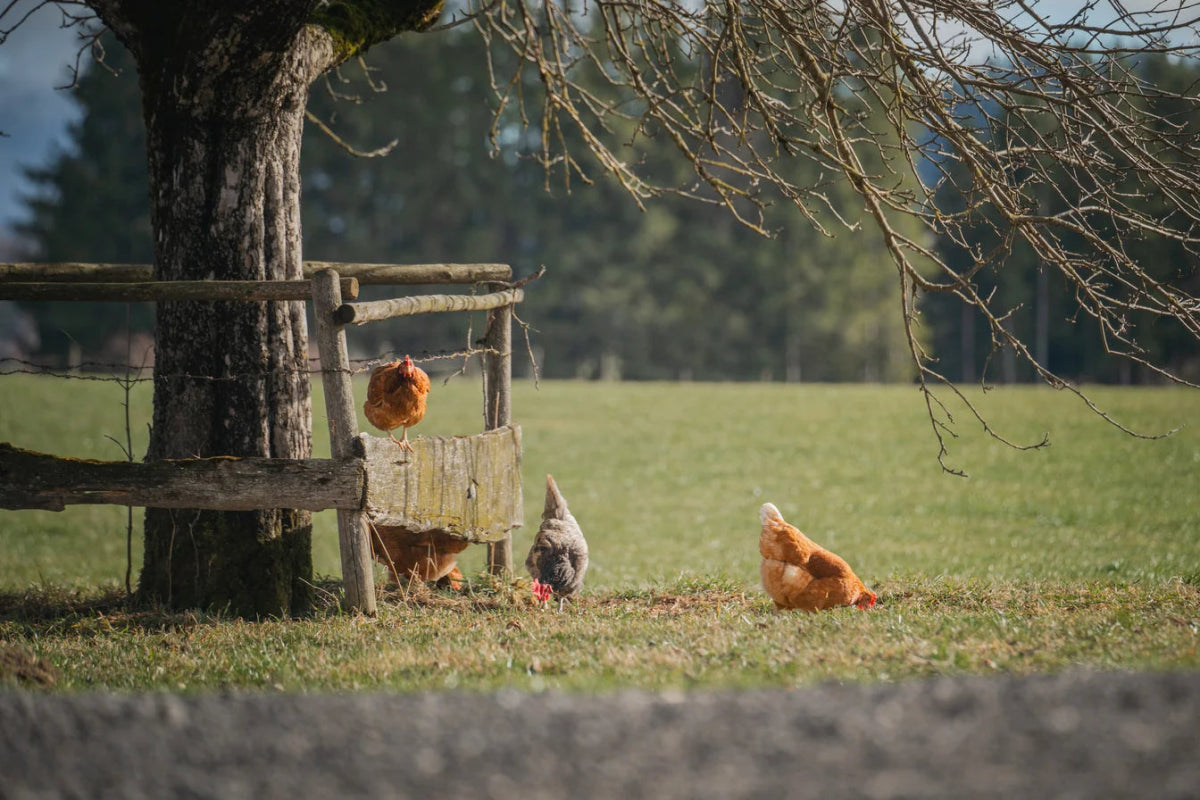Have you ever wondered why your chickens sometimes act like they're in a well-organized company? It's due to the pecking order, a complex system of social structures that determines how peaceful or turbulent life will be in your chicken coop .
What does pecking order mean?
The pecking order is a hierarchical system among chickens that determines which chicken is in charge. This system influences almost every aspect of their daily lives, from food intake to roosting locations . A chicken's position in this hierarchy is often based on age, personality , and sometimes physical strength . Ambitious hens can work their way up from the lower ranks by challenging their more timid coopmates.
How the pecking order affects the enclosure
Food and sleeping place
Chickens at the top of the pecking order eat first and choose the best roosting spots. This can result in lower-ranking chickens receiving less food and having to roost in less sheltered spots.
Space requirements
More space can reduce conflicts because subordinate chickens can more easily avoid the more dominant ones without being cornered.
Pecking and scratching
While some pecking is normal, in a stressful environment with too many chickens, serious bullying can occur. Main causes include boredom , illness, and overcrowding.
Tips for a peaceful coexistence of chickens
Introducing new chickens
It's best to introduce new chickens—or even better, those that already know each other—in a separate area first, so they can get used to it without direct pressure. Then you can gradually introduce them to the others.
Young chickens are often integrated into an existing group more quickly and easily, even if they are physically smaller than the older ones. In this case, rank is already determined by physical superiority.
Enough space
Make sure your chicken coop and enclosure are large enough to provide adequate space for all of your chickens. This will help minimize stress and conflict. Here are more tips for keeping chickens in your backyard .
Varied activities
Boredom is a major stress factor for chickens. Offer a variety of activities, such as pecking at hay bales or searching for food in the outdoor enclosure. You can find out more about this in our article on keeping chickens busy.
Hiding places
Give shy or low-ranking chickens a chance to retreat when they need to. For example, install slats at different heights, let the chickens search for a bale of hay or straw, or scatter healthy, feel-good herbs on the ground so the chickens can go on a treasure hunt.
Temporarily separate "bullies"
If a chicken continually displays aggressive behavior, it may be useful to temporarily isolate it to allow a reassessment of the pecking order.
Conclusion
The pecking order in chickens provides structure and gives each chicken its place in the group. But it's up to you to create conditions so that all chickens can live healthy and happy lives. Make sure they have enough space, provide regular exercise, and intervene if the pecking order turns into bullying. You can find more helpful tips for dealing with molting in chickens here . By being proactive and well-informed, you can help keep your feathered friends happy and healthy.




